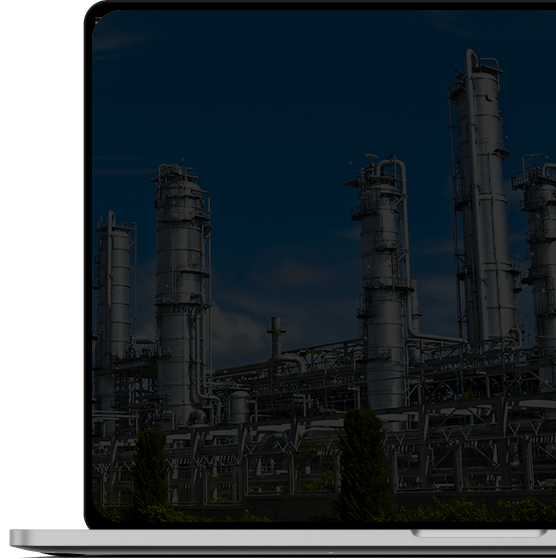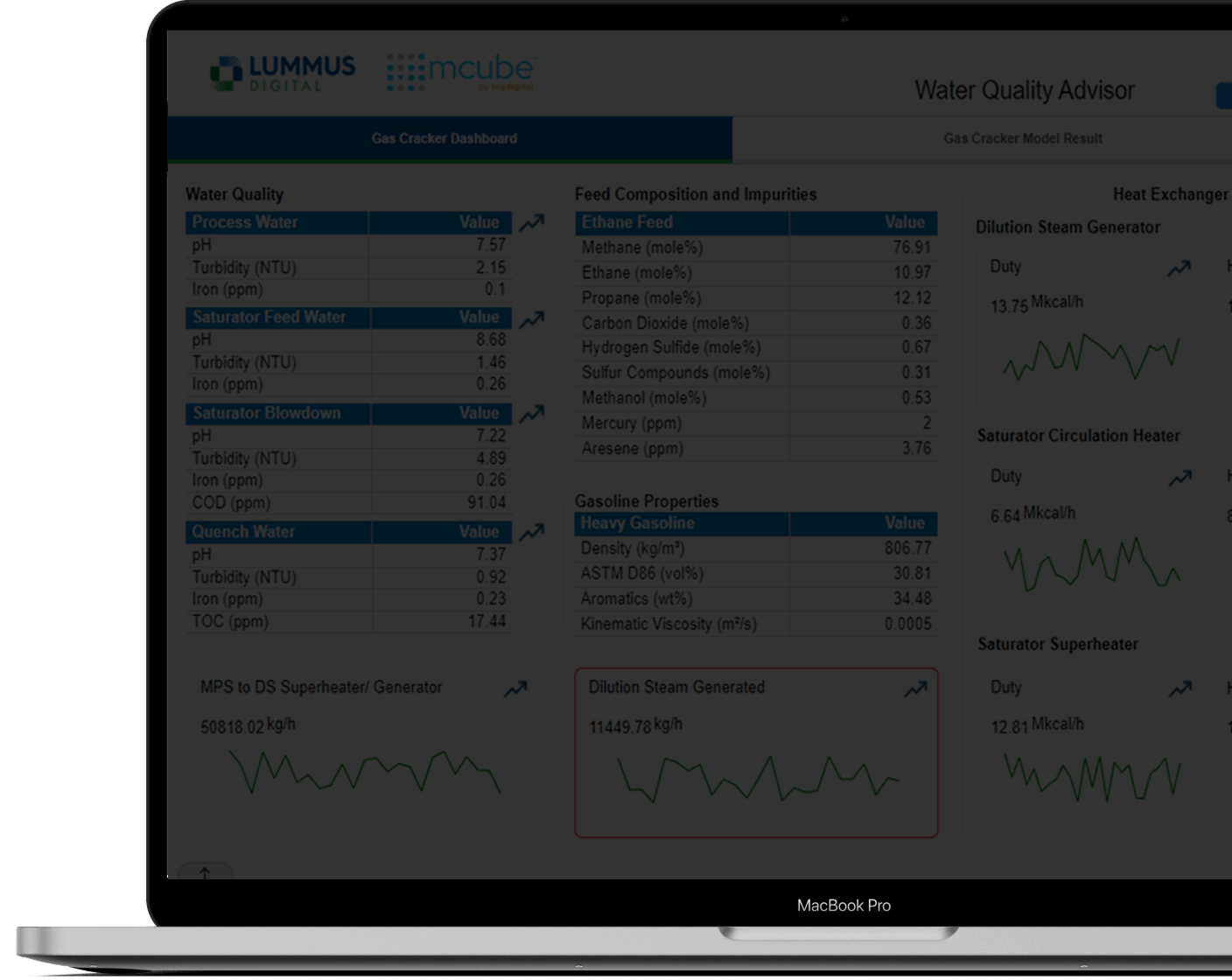- Company
- Products
Petrochemicals
Refining
Sustainability
- Napcon AI
- Our Platform
- Hybrid Process Modelling
- Resources
Approximately 50% of ethylene plant owners report issues with emulsions in their water/gasoline separation. Poor water quality control can have significant impact on plant performance by leading to fouling of exchangers, corrosion/erosion of piping and equipment, high water blowdown/makeup, added wastewater processing costs, chemical carryover into dilution steam, and high coalescer replacement costs.
Process simulators and first principles models do not adequately address the quality of the quench water and process water. Issues such as emulsions, turbidity, and fouling are difficult for operators to anticipate and control.
By integrating first principles models with data science, a model can be achieved that can accurately predict the effect of operational changes on these properties associated with water quality and recommend operational adjustments to minimize poor water.
Watch Demo

Water Quality Advisor
10%
10%
Reduction in Piping and Equipment Replacement Costs
Hybrid Model
First-principles models and equations are used to determine the composition and properties of heater effluent, as well as other unmeasured parameters in the plant. These models, built on first-principles expertise, evaluate the potential impacts of poor water quality.
Machine learning is utilized to correlate independent and dependent parameters, predict the impact of operational setpoint changes on objective functions, optimize operations for water quality, and provide actionable recommendations.

Transform your Challenges into Opportunities
Water Quality Advisor is designed to address the critical challenges faced by industrial operations, providing advanced AI-driven solutions that not only predict and prevent potential issues but also optimize performance, reduce costs, and enhance overall efficiency
Pain Point
Inability to Predict Water Quality Issues
Benefit
Real-time monitoring and predictive analytics identify potential issues resulting from poor water quality before they cause operational disruptions.
Pain Point
Difficulty in Managing Many Properties across Multiple Water Systems Simultaneously
Benefit
Monitor and manage all relevant systems with a comprehensive, flexible dashboard tailored to your needs.
Pain Point
Increased Operating and Capital Costs
Benefit
Reduce costs, as well as operational risks with predictive maintenance capabilities.
Pain Point
Uncertainty in Operating Setpoints to Optimize Water Quality
Benefit
Optimize water property and water/hydrocarbon separation with actionable recommendations based on AI-driven insights.
Performance Deviation Prediction
Monitor dependent parameters such as exchanger fouling, makeup/blowdown rates, hydrocarbon content in water streams, turbidity, pH, and chemical injection rates.
Key Parameter Monitoring
Correlate monitored parameters with influencing factors like chemical injection rates, feed impurities, heater operation, and steam ratio.
Process and Efficiency Trends
Operational Benchmarking
Provide a comparison table between the “Current Operation” and the “Recommended Operation”.
Actionable Insights for Improvement
Actionable recommendation (comparing with current values) on controllable parameters such as chemical injection rates.



